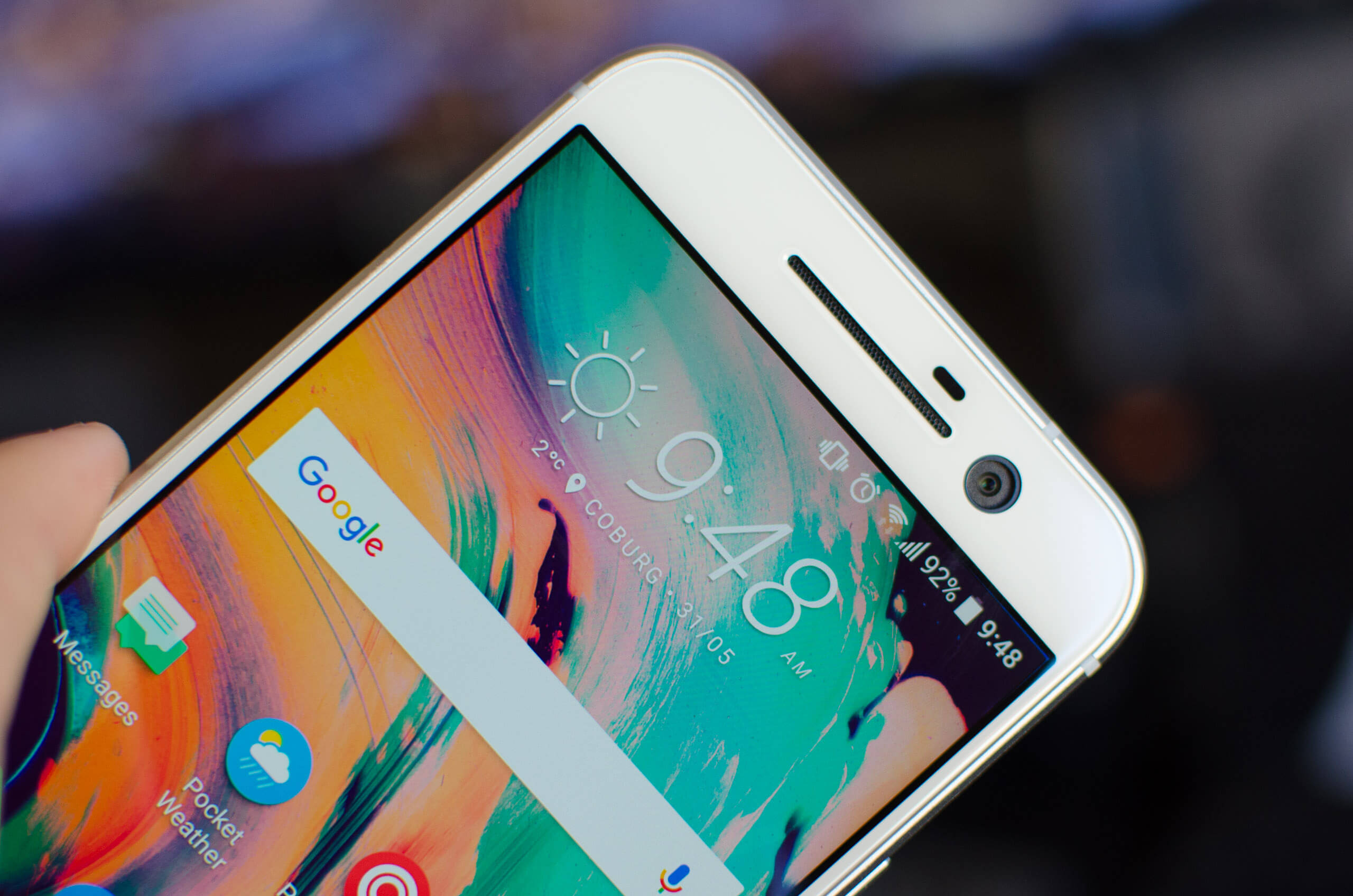Hardware Overview and CPU Performance
There's nothing too unusual about the hardware found in the HTC 10. The SoC is a Snapdragon 820 that we first reviewed in the LG G5, so we know already that we're getting fantastic performance. The Snapdragon 820 packs a quad-core Kryo CPU split into two clusters: one clocked at 2.15 GHz and the other clocked at 1.59 GHz. There's also an Adreno 530 GPU clocked at 624 MHz, a new Hexagon 680 DSP, and a 64-bit memory controller providing up to 29.8 GB/s of bandwidth.
In the HTC 10 in particular there is 4 GB of LPDDR4 memory and either 32 or 64 GB of memory. Most models you'll find on the market will be the 32 GB model as this device also packs a microSD card slot for cheap expandable storage. There's also USB 3.1 support through the USB Type-C port for fast data transfer to this storage.
Connectivity wise there are no surprises. Dual-band Wi-Fi 802.11a/b/g/n/ac, Bluetooth 4.2, NFC, DLNA, GPS + GLONASS, and LTE Category 9 with support for up to 450 Mbps down and 50 Mbps up. There are different models of the HTC 10 out there with a different collection of LTE bands, but the US model seems to cover most regions pretty well with its 13 FDD bands. The model for Australia, and the one I received, supports fewer FDD bands but includes TDD support for the region.
One key piece of connectivity that the HTC 10 includes is AirPlay support out of the box, which allows this phone to easily connect to media devices through Apple's protocol. AirPlay devices are abundant and the protocol works quickly and easily, so it's a clever inclusion by HTC.
Performance in general from the HTC 10 is fantastic as you'd expect from a high-end device. Let's take a look at how the handset performs in a range of benchmarks

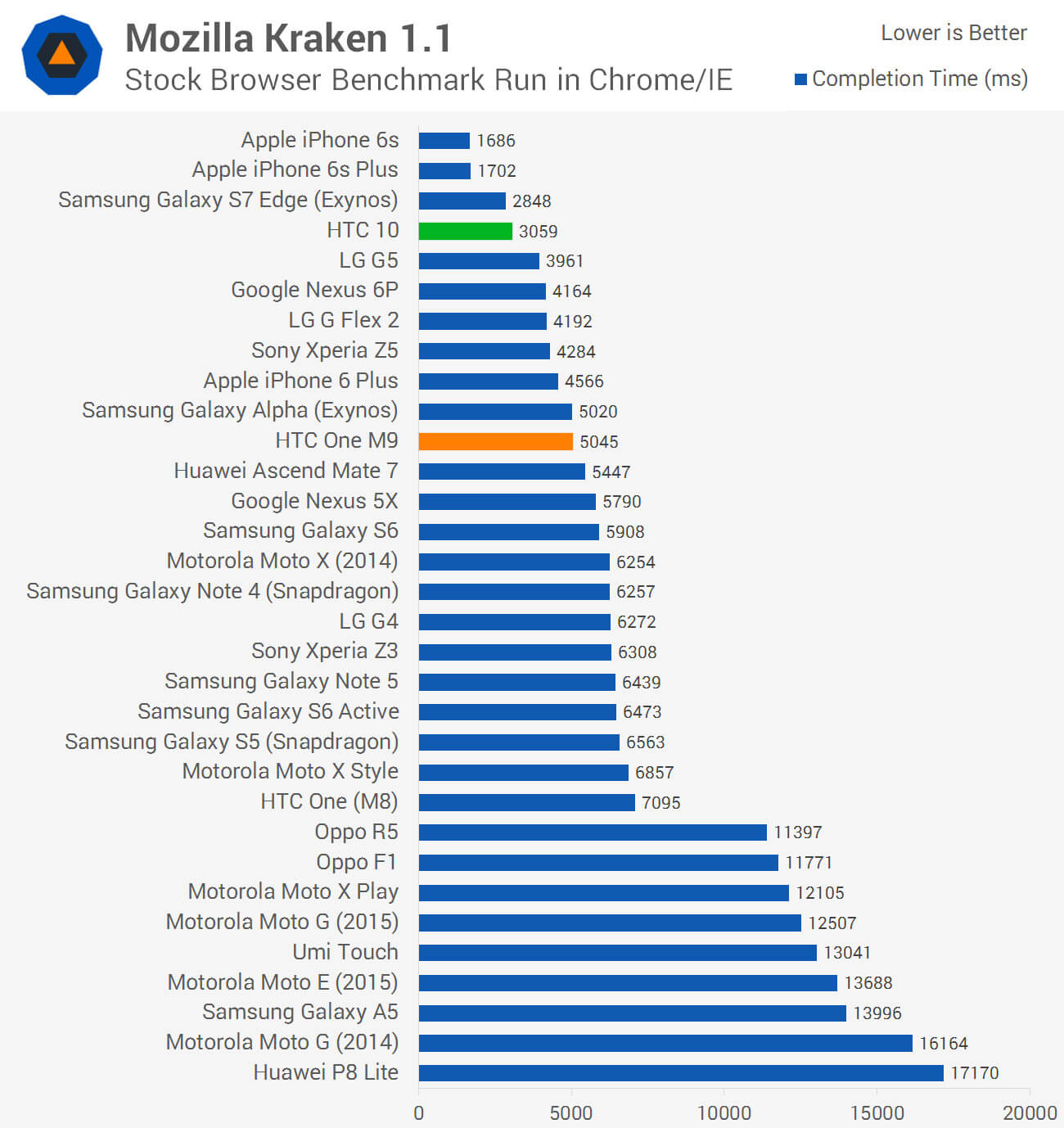
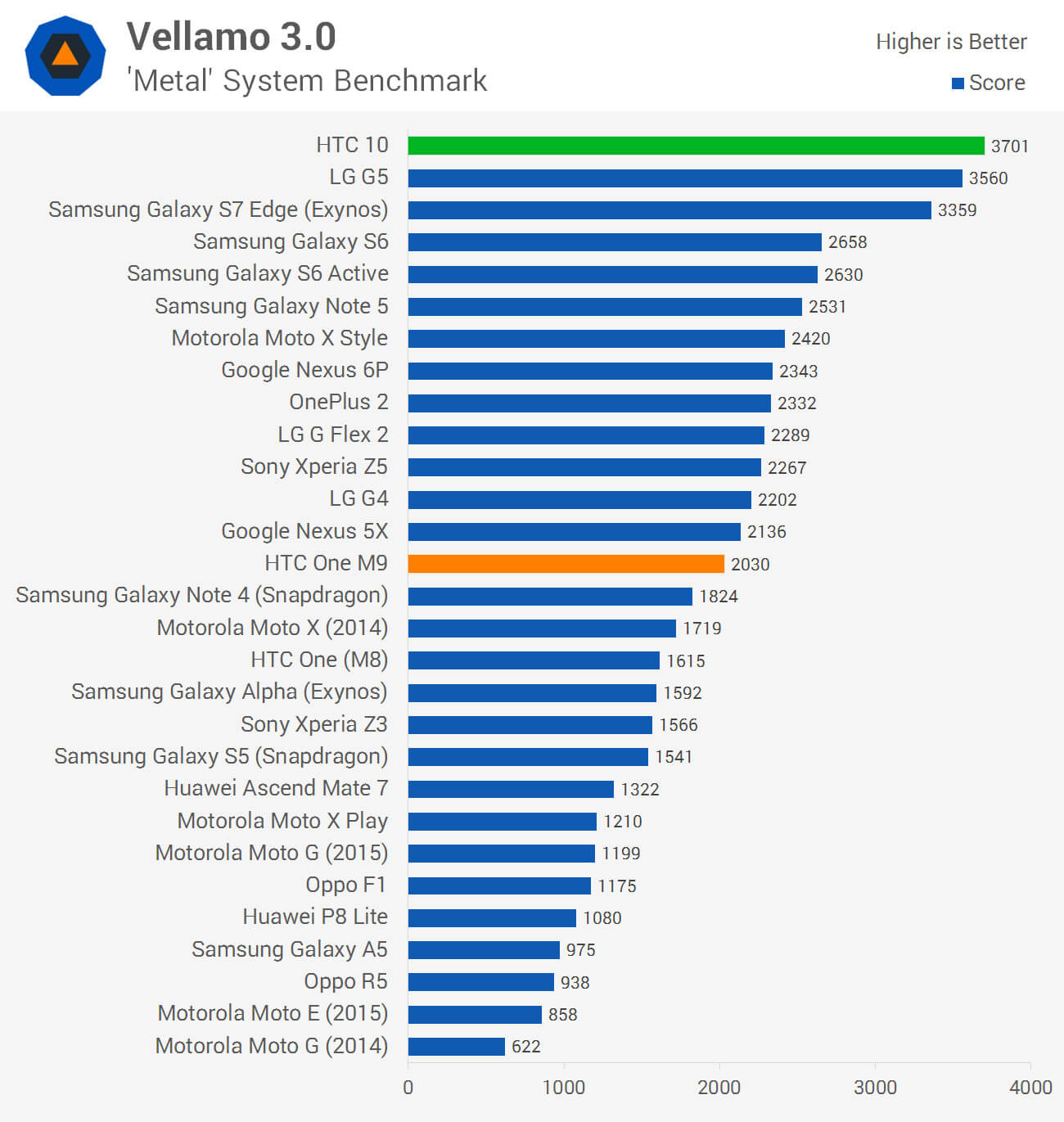
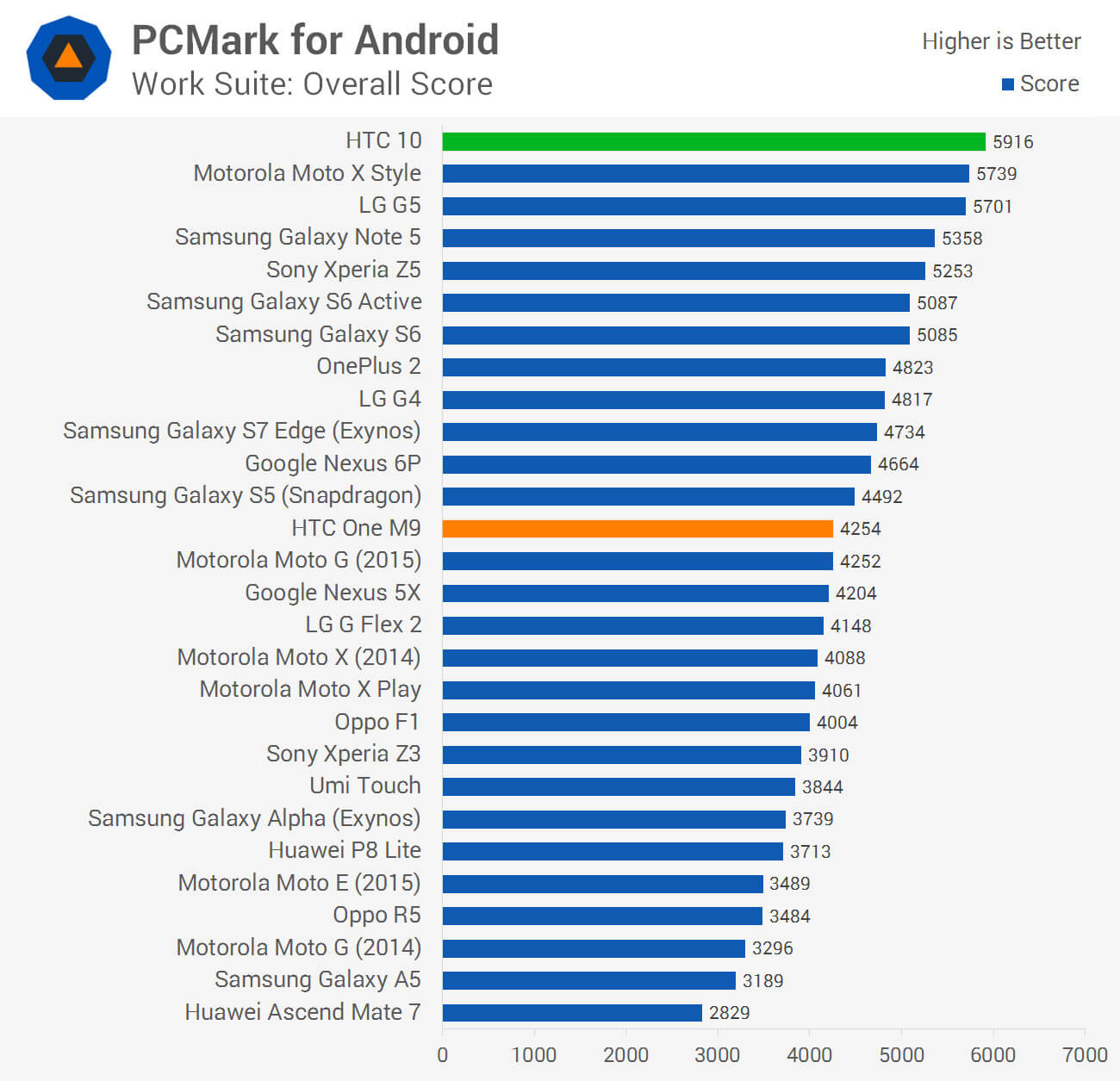
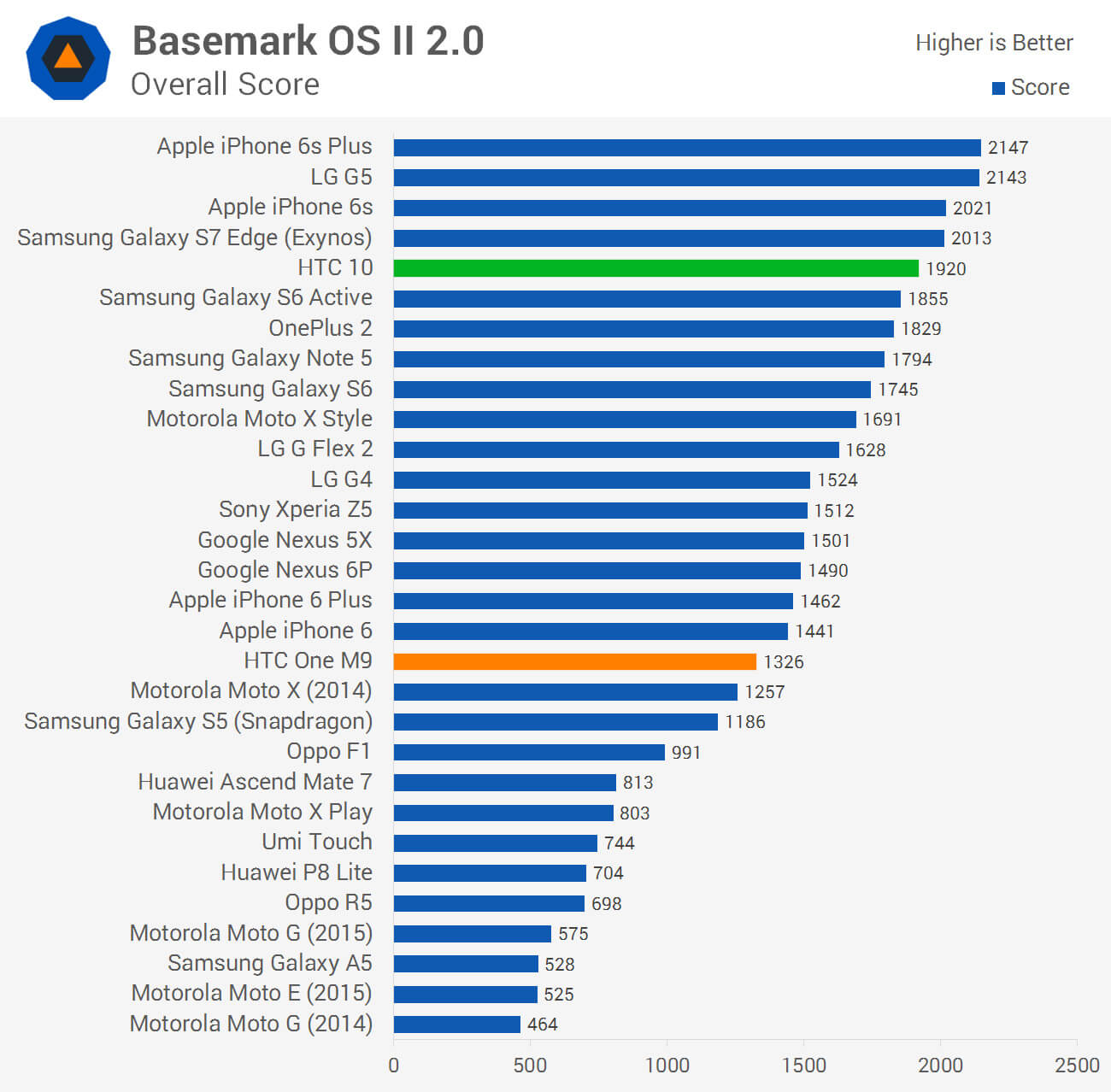
On the CPU side, the HTC 10 is 62% faster than the HTC One M9 with its Snapdragon 810 SoC, which is a significant performance improvement. The 10 is slightly faster than the Galaxy S7 Edge in CPU workloads, and as expected, performance is nearly identical to the LG G5. We're also seeing more than double the performance of the HTC One M8 for those thinking of upgrading from a two-year-old Snapdragon 801 device.
